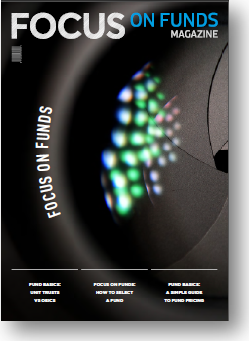Mar
2019
Banking on diversification: Bankers Investment Trust
DIY Investor
14 March 2019
With a number of headwinds facing markets in 2019, it can be hard to see the wood for the trees.
Alex Crooke, Fund Manager of The Bankers Investment Trust, explains how his team approaches the complexities of global stock markets.
As we start 2019 there are plenty of reasons for investors to be cautious, as ever, but more often than not the situation turns out less gloomy than we are led to believe.
Talks of a global recession are cropping up more and more, not least because it’s been 10 years since the global financial crisis. We’re not convinced at The Bankers Investment Trust that a global recession is imminent because conditions are very different from just before the last downturn in 2008.
Causes for concern
It’s fair to say there are a number of significant forces at play that could have meaningful consequences for markets. Here in the UK, the country’s exit from the EU has already affected both the exchange rate of the Pound and local equities. Brexit has fogged the country’s corporate landscape as it prepares for life outside Europe’s political and economic union and the pessimism towards UK equities is unprecedented.
Across the Atlantic, the US has enjoyed a long-running bull market, buoyed early last year by President Trump’s corporate tax cuts. Those cuts were significant in scale and raised plenty of eyebrows when considered in the context of the country’s eye-watering national debt of more than $20 trillion.
‘Brexit has fogged the country’s corporate landscape’
President Trump’s campaign to renegotiate trade tariffs has also been hogging the headlines. The so-called ‘trade war’ with China has brought about political tensions between the world’s two largest economies that are certainly not helpful in stimulating global trade.
Beyond these headlines there are other very important considerations for investors, such as the reversal of quantitative easing measures by major central banks around the world – so-called quantitative tightening; as well as the ongoing and hastening influence of disruptive technology on established business models; and the disparate fiscal policies between developed nations.
It is important to be mindful of these factors, but it would be a mistake to become too bearish too early, and in our opinion the classic indicators of an impending global recession are not present.
‘in our opinion the classic indicators of an impending global recession are not present’
For example, it is hard currently to see the signs of excess that typically precede global economic recessions. Bank lending to corporates and consumers has not risen sharply, takeover activity is muted and corporate capital expenditure is only just beginning to recover. Inflation isn’t rampant and interest rates remain low, all of which are contradictory to the classic indicators of a looming global recession.
But stock markets have fallen sharply over the course of 2018, many entering bear market territory, in reaction to fears of an imminent economic slow-down. Is the market set back setting up an opportunity for value investors?
Should we beware the bear?
A bear market, whereby share prices fall at least 20% from their highs is more common than many think. Europe has arguably been in a bear market for most of 2018 and there is little question China has been in bear market territory since early February.
‘a bear market provides an opportunity to get ahead of the market’
For active stock-pickers like ourselves, a bear market provides an opportunity to get ahead of the market by buying strong businesses at attractive valuations, with a focus on longer term outperformance. A degree of volatility is normal is equity markets as they are discounting mechanisms for investor’s views of future returns.
The US market is one of the few to buck the trend, albeit December’s fall puts it closer to bear market levels. The major US stock market indices hit 10-year highs in 2018 but the correction over the last quarter is a sign that valuations may have peaked. That isn’t necessarily a bad thing. When prices come down, opportunities arise and value-driven opportunities return to the market.
Horses for courses
The enormous advantage for The Bankers Investment Trust is that the management team is unbound by geography, sector, market capitalisation or style. That means the portfolio can be designed to cherry-pick the best companies around the world to meet our objectives, which are to beat the FTSE World Index and achieve annual dividend growth greater than the rate of UK inflation.
The largest geographical exposure within the portfolio is to North American equities (c.30%). As already stated, the US’ long running bull market has been fantastic for growth stocks, which the Trust has been a beneficiary of with holdings like Microsoft, and Netflix – diverse companies but both delivering strong growth in customer numbers.
This sleeve also contains many innovative companies in the cross-hairs of important socioeconomic trends, like MasterCard and American Express in the transition to cash-less payments; and CVS Health Corp in the growing direct-to-consumer healthcare market.
The next largest geographical weighting is the UK (25%), to which we have carefully trimmed our exposure to in the past 12 months or so. The bulk of the investments in the UK are towards the global corporates that happen to be listed in London.
The UK may be out of favour with investors, but there remains a strong dividend-paying culture, which is a vital component of the Trust’s portfolio.
Whatever happens with Brexit, there are some UK companies that we believe will continue to perform and provide that all-important income for the Trust, such as beverage conglomerate Diageo and pharma giant Glaxosmithkline, to name but a few.
Europe (16%), the Pacific region (14%) and Japan (12%) each provide something slightly different. European equities may have disappointed in 2018, but earnings here have been solid and the region’s dividend-paying track-record is attractive. We think there may be some interesting opportunities here in 2019 – particularly if US investors decide to seek cheaper shares outside their home market.
The China sleeve accounts for around 6% of the total portfolio and is an interesting region for us. Since the end of 2017, Chinese equities have been heading deeper into value territory when measured on price-to-earnings metrics but corporate earnings have held up remarkedly well.
‘the portfolio can be designed to cherry-pick the best companies around the world’
Our focus has been on domestically exposed consumer related companies rather than the exporters that have been caught out by Trump’s trade negotiations. Over the medium term we still expect China to deliver higher growth than more developed markets.
There is a strong growth story across Asia with domestic companies eating into the market share of Western brands that have traditionally been market leaders in the region.
We are seeing this in smartphones and even food and beverage brands. Negative sentiment may have dragged valuations down, but we think more Asian companies will become global market leaders in the next 10 years, so it’s an important part of the Trust’s long-term strategy.
Cautiously optimistic
This geographic diversification and balance between income and growth-oriented strategies provides the Trust with a great balance. This is only possible with a management team containing regional experts, each with different expertise and styles.
While it appears difficult to forecast political events with any conviction, the state of the global economy is not broken.
Confidence is currently low, but this is a good starting point to make investments, especially as valuations are now below their long term averages. We are being careful in taking on new positions, but are increasingly seeing opportunities that attract us and that we feel will deliver excellent long term returns.
These are the views of the author at the time of publication and may differ from the views of other individuals/teams at Janus Henderson Investors. Any securities, funds, sectors and indices mentioned within this article do not constitute or form part of any offer or solicitation to buy or sell them.
Past performance is not a guide to future performance. The value of an investment and the income from it can fall as well as rise and you may not get back the amount originally invested.
The information in this article does not qualify as an investment recommendation.
Issued in the UK by Janus Henderson Investors. Janus Henderson Investors is the name under which investment products and services are provided by Janus Capital International Limited (reg no. 3594615), Henderson Global Investors Limited (reg. no. 906355), Henderson Investment Funds Limited (reg. no. 2678531), AlphaGen Capital Limited (reg. no. 962757), Henderson Equity Partners Limited (reg. no.2606646), (each registered in England and Wales at 201 Bishopsgate, London EC2M 3AE and regulated by the Financial Conduct Authority) and Henderson Management S.A. (reg no. B22848 at 2 Rue de Bitbourg, L-1273, Luxembourg an regulated by the Commission de Surveillance du Secteur Financier).
[Janus Henderson, Janus, Henderson, Perkins, Intech, Alphagen, VelocityShares, Knowledge. Shared and Knowledge Labs] are trademarks of Janus Henderson Group plc or one of its subsidiaries. © Janus Henderson Group plc.
Click on the image to visit Focus on Funds Magazine
Commentary » Henderson Partner Page » Investment trusts Commentary » Investment trusts Latest » Latest



Leave a Reply
You must be logged in to post a comment.